The last days I was invited to Malta for bilateral discussions and meetings, but also to participate in the launch of a great priject – the book about the Customs Union named ‘The EU Customs Union @ 50’.
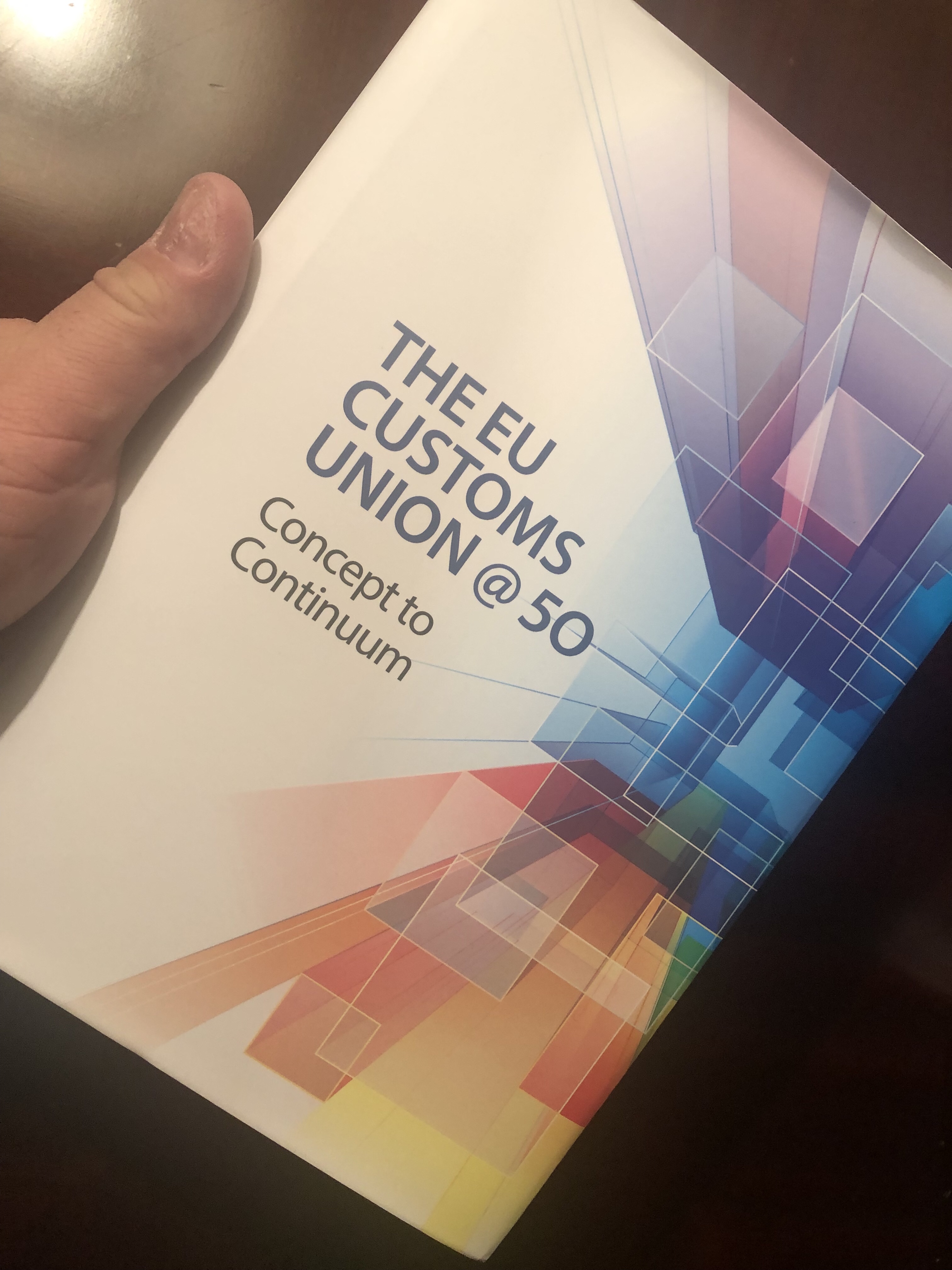
This is an ambitious project organized by Malta Customs in cooperation with the European Commission to describe the miracles of the Customs Union and free movement of goods to people. A very timely initiative taking into account the Brexit process.
The book project also aimed to outline the future lf the Customs Uniona and a number of Customs and Trade experts were invited to write a chaiter in the book.
I am very proud to be one of the authors of this book, contributing with a chapter called ‘A more entrepreneurial Customs Union – The future is already here’.
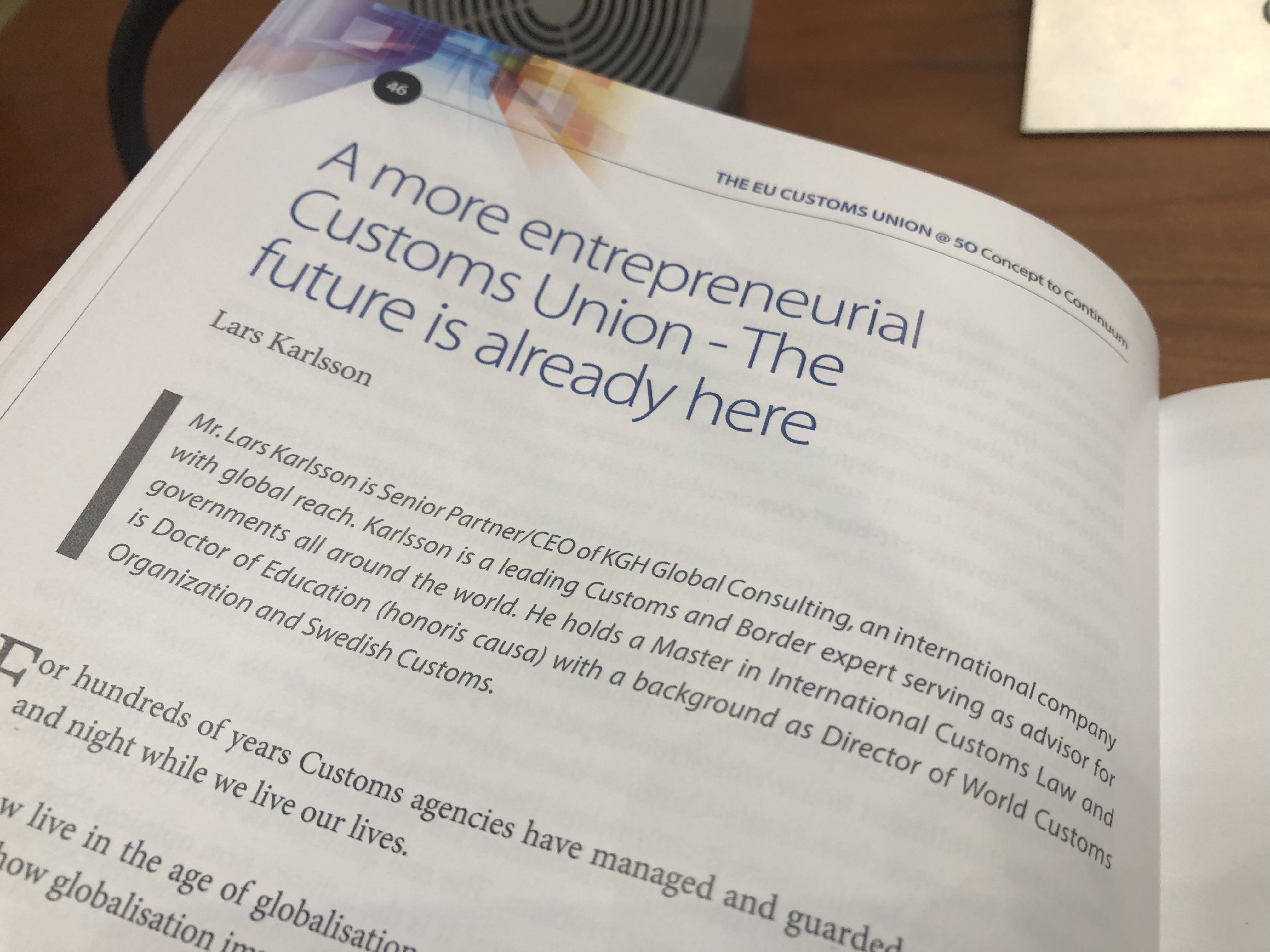
The book was launched with a session in Malta Parliament on Friday this week. Here is a photo from the Press Conference; Philip Kermode EU Commission, Joseph Chetcuti DG of Malta Customs and Ian Muscat, Head of International and Project Manage rfor the project.
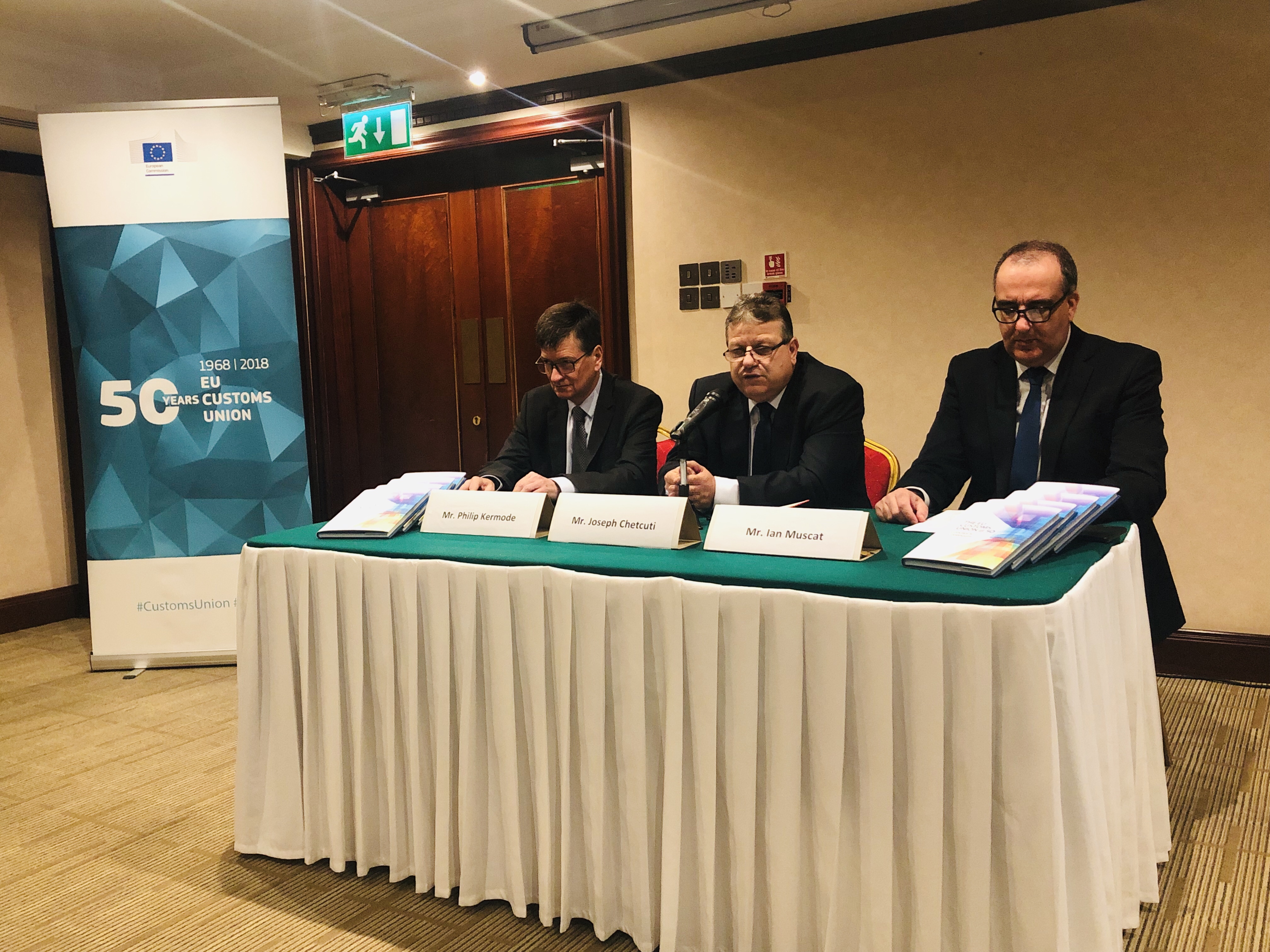
This year the EU Customs Union celebrates 50 years and is maybe the best example on integrated very far reaching cooperstion bringing prosperity to the 28 member states.
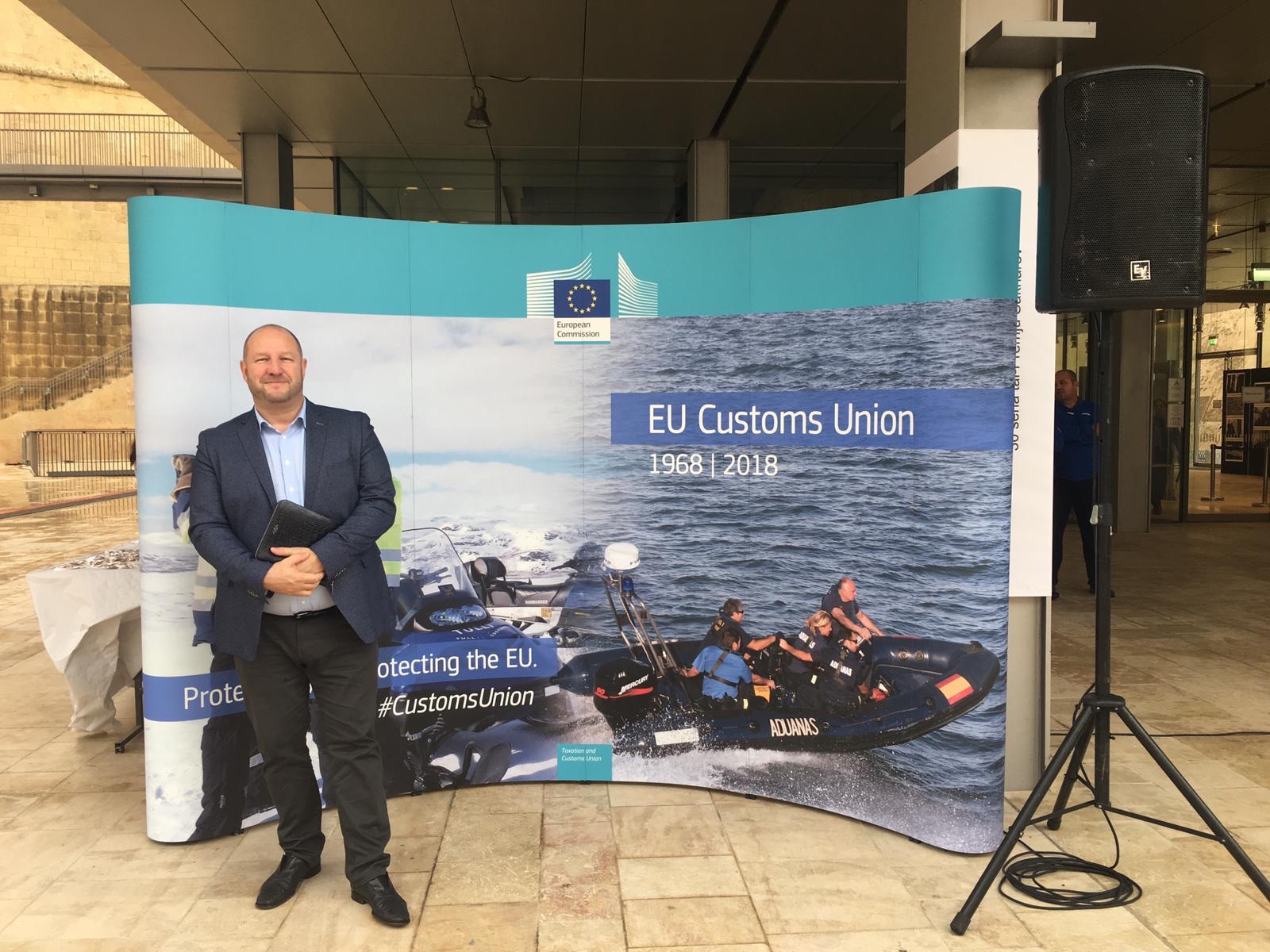
At the event I met many great colleagues and friends including my old friend Joe Chetcuti, Director General of Malta Customs.

Here with two other great Customs colleagues, Marta Guelbenzo (Spain) and Michael Praschak (Austria).
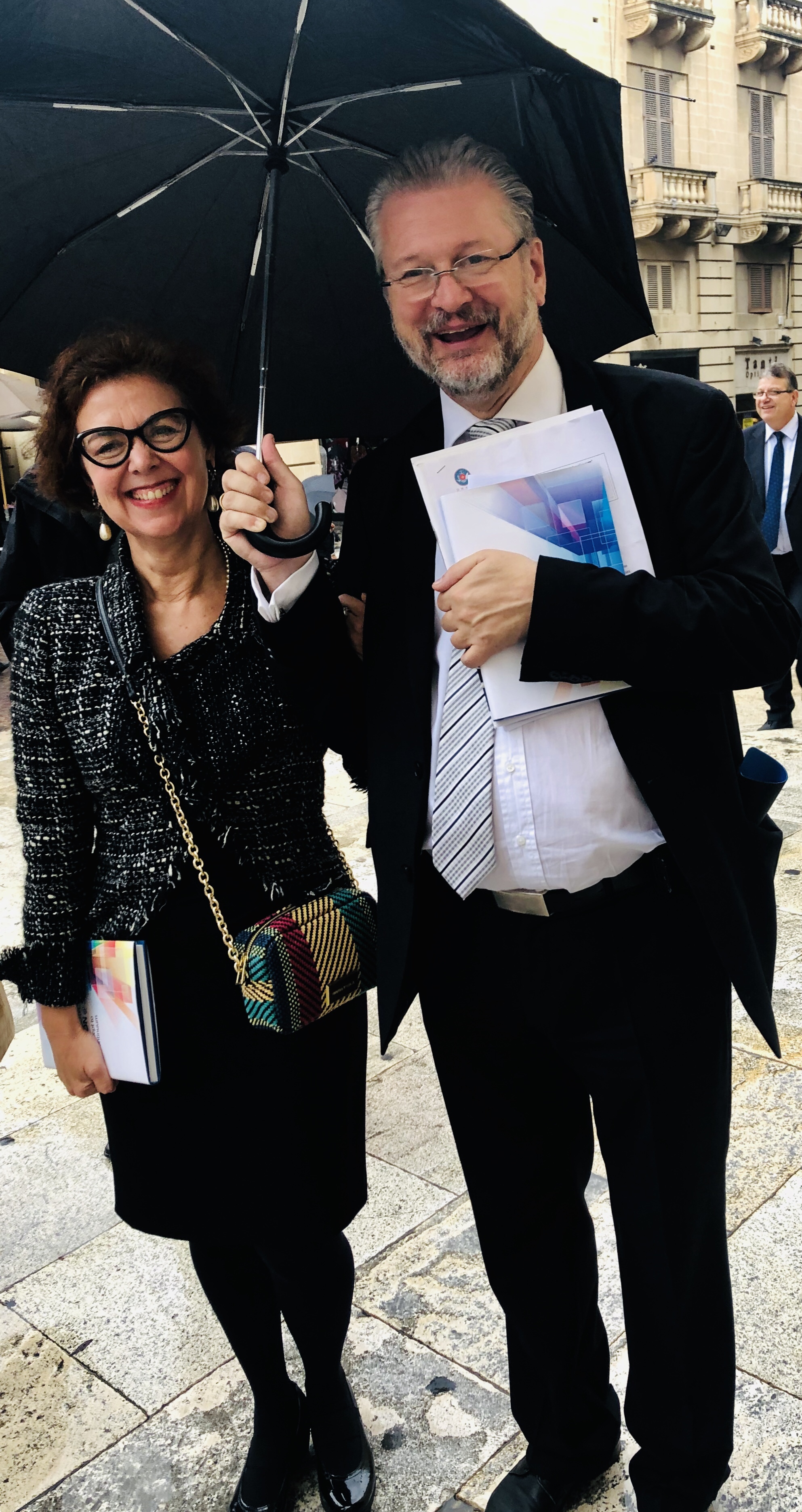
The EU Customs Union is the most advanced Customs cooperation in the world.
If you want to know more about it – and where a large number of Csustoms experts think it is going in the future, I have three words for you: read this book.
The draft Brexit withdrawal agreement stands at 585 pages long. It sets out how the UK leaves the European Union, scheduled for 29 March 2019.
So what in the 585 page long draft withdrawel agreement?

BBC has written a good guide that summerizes the paper.
Transition
▪ The transition period (which the UK government calls “implementation period”) begins on 29 March 2019 and lasts until 31 December 2020.
▪ The UK will need to abide by all EU rules, but will lose membership of its institutions.
▪ The draft withdrawal agreement says the transition can be extended, but this can only happen once and for a limited period.
▪ Both the UK and EU must agree to any extension and the decision must be taken before 1 July 2020.
Money
▪ The draft agreement sets out the calculations for the financial settlement (or “divorce bill”) that the UK will need to pay to the EU to settle all of its obligations.
▪ While no figure appears in the document, it is expected to be at least £39bn and it will be paid over a number of years.
▪ Part of that money will be the financial contribution that the UK has to make during the transition period. This year the UK’s contribution to the EU budget is forecast to be a net £10.8bn.
▪ If the transition is extended, there will have to be additional UK payments to the EU budget, which will be agreed separately.
Citizens’ rights
▪ This is broadly unchanged from the initial draft of the withdrawal agreement which came out in March.
▪ UK citizens in the EU, and EU citizens in the UK, will retain their residency and social security rights after Brexit.
▪ Citizens who take up residency in another EU country during the transition period (including the UK of course) will be allowed to stay in that country after the transition.
▪ Anyone that stays in the same EU country for five years will be allowed to apply for permanent residence.
Northern Ireland/the backstop
▪ If no long-term trade deal has been agreed by the end of 2020 that avoids a hard border between Northern Ireland and the Republic of Ireland, and if there is no extension to the transition period, then a backstop consisting of “a single customs territory between the (European) Union and the United Kingdom” will be triggered.
▪ Northern Ireland will be in a deeper customs relationship with the EU than the rest of the UK; it will also be more closely aligned with the rules and regulations of the EU single market.
▪ As long as the backstop is in operation, the UK will be subject to “level playing field conditions”, to ensure it cannot gain a competitive advantage while remaining in the same customs territory.
▪ The UK cannot leave the backstop independently, it needs to be decided together with the EU.
Fishing
▪ The agreement says that a separate agreement will need to be reached on access to EU fishing in UK waters.
▪ The document says: “The Union and the United Kingdom shall use their best endeavours to conclude and ratify ‘an agreement’ on access to waters and fishing opportunities.”
Laws and disputes
▪ The UK will remain under European Court of Justice (ECJ) jurisdiction during the transition.
▪ If the backstop is triggered and the UK forms a single customs territory with the EU, the ECJ will not be able to resolve disputes between the UK and EU.
▪ Instead, there will be a dispute resolution procedure which provides for arbitration. However, if the dispute rests on the interpretation of EU law, the arbitration panel refers the case to the ECJ for a binding decision
What else is in it?
▪ Elsewhere in the agreement there are protocols on Gibraltar and the British military bases in Cyprus.
▪ There’s a provision that the UK will withdraw from the European Atomic Energy Community (Euratom), which relates to how nuclear material is handled.
▪ EU-approved geographic indications, protecting approved names like “Welsh Lamb” or “Parma Ham” remain.
▪ Alongside the withdrawal agreement, there’s the outline of the political declaration, setting out what the future UK/EU relationship might look like. It’s currently only seven pages long but it’s being fleshed out in negotiations that are still continuing in the run-up to the EU’s Brexit summit on 25 November.
Source: BBC
Brussels is on edge, but it has no intention of going back to the Brexit drawing board. Chief Brexit negotiator Michel Barnier told a meeting of EU27 ambassadors Friday morning that whatever political “difficulties” Theresa May is experiencing in London, the bloc has a “duty” to stand firm on its key Brexit red lines, according to EU diplomats present. For her part, May is standing firm on the deal in the face of a gale of criticism and is intent on pushing the deal to a vote in the House of Commons. But if political opponents in her own party succeed in forcing her to seek a better deal, there is no sign that any of the EU27 red lines will change.
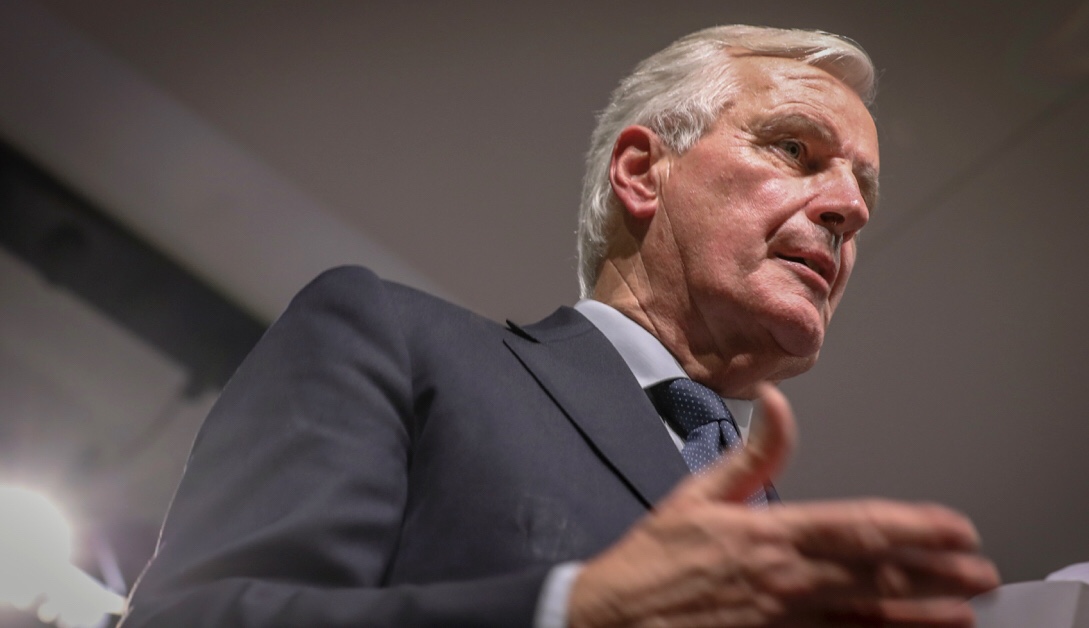
We cannot “compromise” or engage in “cherry-picking” or “bargaining,” Barnier told ambassadors, referring to requests to reopen the draft deal that was agreed by the British Cabinet on Wednesday. He added that he expects “difficult negotiations” ahead. Barnier also expressed a desire to help the British government in its efforts to ratify the text in a vote of MPs. And he said that there could be room for movement on the EU side in specific areas, such as enhanced cooperation on phytosanitary regulations and so-called technical barriers to trade. It is a moment not for triumphalism, he said, but for “encouragement.”
The chief negotiator’s presentation at the more than two-hour meeting reflects a dilemma for Brussels. While EU countries want to help May get the deal through parliament, there is a reluctance at such a late stage to radically unpick the agreement — despite threats to May’s leadership and a series of ministerial resignations over the deal. Diplomats say that some tweaks might still be possible if they could make the difference between the deal succeeding or crashing, but the kind of radical overhaul proposed by Brexiteers such as former Brexit Secretary David Davis is simply not on the table. There is “no question” of that, German Chancellor Angela Merkel said Thursday. “If we renegotiate something it could be on very small details,” said a senior EU diplomat “[but] it will not be on the main issues.”
There is “no question” of radical overhaul of the deal, German Chancellor Angela Merkel
“Europeans are not scared, but very cautious, and everybody hopes the deal will be approved,” he added, saying that the first major challenge will be the tight timescale to consider the details of the deal before a hastily arranged EU leaders’ summit on November 25.
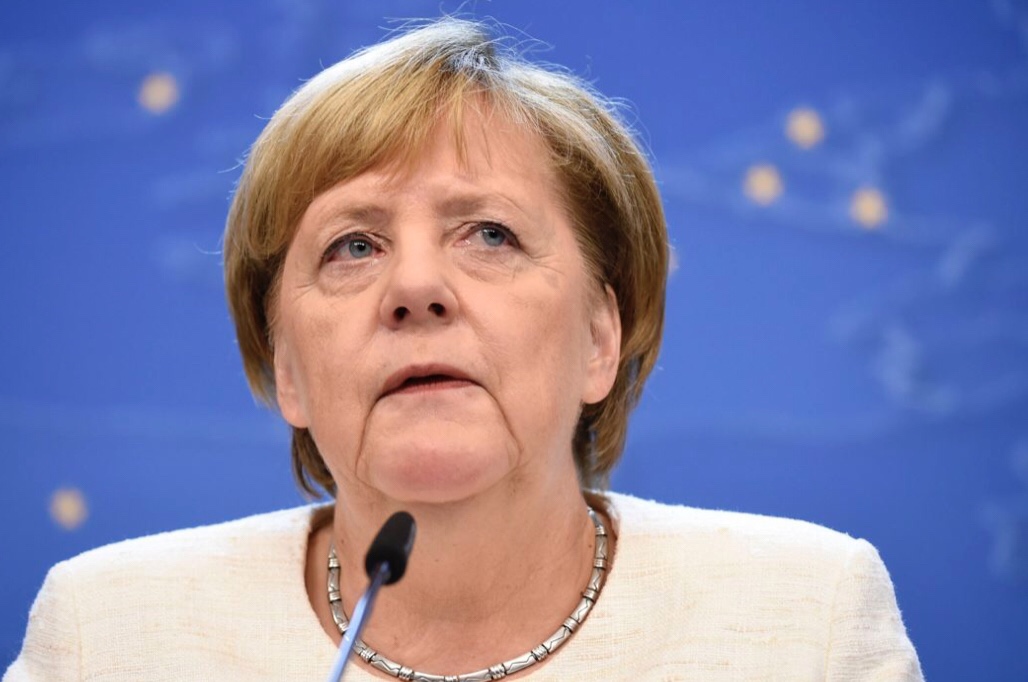
“Some of us will need to consult our MPs on the text, and make the necessary democratic deliberations in our countries,” the diplomat added. “All eyes are on London,” said another EU diplomat. “We see there are some turbulences.” Asked about the mood in Brussels, the diplomat said: “It’s a feeling of relief that at least there’s a text on the table.” A third diplomat added: “Everyone is committed to getting the ball over the line.” In any case, as Barnier said Wednesday, EU capitals feel that they have already given significant ground in the final stages of the talks. And not everyone is happy with all aspects of the final deal. “We had to accept compromises,” said the second diplomat. “There are some points that also make some EU members uncomfortable.” The diplomat cited the EU’s acceptance of an all-U.K. customs backstop — as an insurance measure to prevent a hard border in Northern Ireland — and the decision to kick negotiations about fisheries access into the transition period that will immediately follow Brexit day in March next year. “It’s not clear, and it will affect millions of jobs,” said the senior EU diplomat. “There’s nothing precise.” Barnier was briefing ambassadors on the state of ongoing talks about the political declaration — the document that will accompany the 585-page Withdrawal Agreement. Only a cursory seven-page outline of that was published on Wednesday evening and the chief negotiator indicated that several issues are still in play.
On security matters including participation in EU agencies such as Europol and Eurojust he said, according to two EU diplomats, that the U.K. does still “not accept” the full ramifications of not being an EU member country. But Barnier added that both sides share the aim of close cooperation. And on mechanisms to ensure there is a level playing field between British and EU businesses after Brexit, EU ambassadors expressed reservations in the discussion following Barnier’s briefing. “Any regulatory gap is a serious issue,” said the senior diplomat, adding that the text “isn’t clear” on environmental and social measures. “The consequences are important because it could enhance any regulatory gap on major issues.” One country’s representative is also “worried” that the text offers too much to the U.K. on services.
Source: Politico






You must be logged in to post a comment.